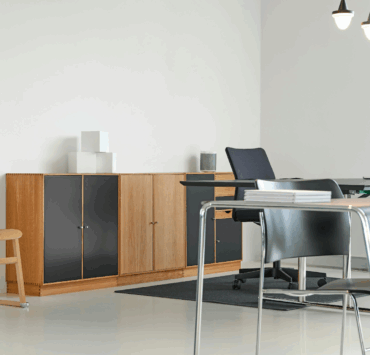Baby Sniffling in Sleep: What’s Normal and When to Worry

Contents
ToggleIf you’ve ever leaned over your baby’s crib and heard gentle sniffles or snorts in the middle of the night, you’re not alone. Many parents quickly worry something’s wrong when their baby sniffling in sleep sounds louder than expected. But in most cases, this sound is completely normal and simply reflects how a newborn’s tiny nose works.
Still, while most babies sniffling in sleep is harmless, it’s natural for parents to want to help their baby breathe comfortably. One simple way to keep nasal passages clear is by using a newborn baby nasal aspirator. Gentle suction helps remove trapped mucus without irritation, ensuring your baby sleeps soundly and breathes freely through their nose.
The Sniffles are Normal: Why Newborns Sound So Loud While Sleeping
Newborns are what doctors call “obligate nasal breathers,” meaning they mostly rely on their noses rather than their mouths to breathe. Since their nasal passages are extremely small, even a thin layer of mucus or dried milk can cause noticeable sniffles or snorts. These sounds often become more noticeable when your baby is sleeping quietly and the room is silent.
As babies grow, their airways widen, and the sniffling tends to lessen. Most parents notice the difference by the time their child is three to six months old. Until then, gentle care and environmental adjustments can help reduce the noise while ensuring your baby breathes comfortably.
It’s the Nose’s Job: How Tiny Airways Lead to Lots of Noise
A baby’s nose is only about half the size of an adult’s but works just as hard. Because of this small space, airflow becomes more turbulent — producing the soft whistling or snorting noises parents often hear during sleep. Even a slight amount of nasal dryness, dust, or milk residue can magnify these sounds.
Rather than trying to silence every sniffle, focus on keeping your baby’s nose clean and moist. Regular use of saline drops and a nasal aspirator helps clear blockages safely and prevent discomfort. Always avoid inserting cotton swabs or tissues deep into the nostrils, as this can irritate sensitive tissue.
The “Milk Sniffle”: Why Feeding Can Temporarily Increase Congestion
Sometimes, sniffling becomes more noticeable after feedings — something many parents call the “milk sniffle.” This can happen when small amounts of milk or formula backflow into the nasal passages during sucking or burping. It’s completely normal and typically clears up after a few gentle sneezes or a short suction with an aspirator.
To minimize this, try keeping your baby slightly upright during and after feeding. Allowing a few extra minutes for burping helps prevent milk from pooling in the throat or nose. Keeping a clean cloth handy and wiping any dribbles also helps reduce nasal buildup.

Assessing the Sound: Distinguishing Normal Snorts from Breathing Distress
While soft sniffling and occasional grunts are typical, certain sounds can signal that something isn’t quite right. If your baby’s sniffling is accompanied by wheezing, labored breathing, flaring nostrils, or visible chest retractions, these could indicate congestion or an underlying respiratory issue.
/Pay attention to patterns — if your baby struggles to feed or seems restless even when awake, it’s worth checking with a pediatrician. True breathing distress usually involves multiple symptoms, not just sound. When in doubt, seek medical advice for reassurance.
Environment Check: The Humidity Factor and Why Air Quality Matters
Dry air is one of the biggest triggers of nighttime sniffles. If your baby’s room feels stuffy or your home’s air conditioning is running constantly, the nasal passages can dry out quickly. Using a cool-mist humidifier adds moisture to the air, easing nasal breathing and reducing the frequency of sniffling.
Also, keep your baby’s sleeping area clean and free of dust, pet dander, or strong scents. These can irritate sensitive noses and make congestion worse. Simple habits like regular sheet changes and vacuuming can make a noticeable difference in your baby’s comfort.
Quick Fixes: Gentle Ways to Clear a Sniffling Nose Before Bedtime
If your baby’s sniffling seems to disrupt their sleep, a gentle bedtime routine can help. Start by using saline drops to loosen any mucus, then follow up with a newborn nasal aspirator to clear out the nose. Doing this before bedtime helps your baby start the night with a clean airway.
You can also use a warm bath or spend a few minutes in a steamy bathroom to help open nasal passages naturally. Afterward, dry your baby thoroughly and dress them in breathable pajamas. These small steps make a big difference in how comfortably they sleep through the night.
When to Call the Doctor: Recognizing Sniffling That Needs Attention
Though most nighttime sniffles are normal, persistent congestion or noisy breathing could point to something more. Call your pediatrician if your baby’s sniffling is accompanied by fever, poor feeding, bluish skin, or pauses in breathing. These are warning signs that shouldn’t be ignored.
Additionally, if sniffling continues beyond six months or worsens despite proper care, a healthcare provider can check for allergies, structural issues, or mild infections. Early evaluation ensures your baby gets the right care and relief quickly.
The Safe Sleep Zone: Positioning Your Sniffling Baby for Comfort and Security
Even when your baby sounds congested, the safest sleep position is always flat on their back on a firm mattress without pillows or wedges. Propping up your baby, even slightly, can increase the risk of suffocation or SIDS. Instead, focus on clearing their nasal passages before sleep and maintaining proper humidity in the room.
If your baby struggles to settle, gentle rocking, white noise, or soft lullabies can help soothe them without compromising safety. Always follow the “ABC” rule for infant sleep: Alone, on their Back, in a Crib.
Summary
Hearing your baby sniffling in sleep can make any parent anxious, but it’s usually a sign of normal newborn breathing rather than illness. Because their nasal passages are small and still adjusting to the outside world, sounds like snorts or snuffles are simply part of the process. Keeping the environment clean, moist, and comfortably cool helps reduce unnecessary noise and supports healthy breathing.
For extra relief, using a newborn nasal aspirator can gently remove mucus, helping your little one rest peacefully through the night. Remember — mild sniffling is expected, but if your baby shows any signs of distress, don’t hesitate to call your pediatrician.



